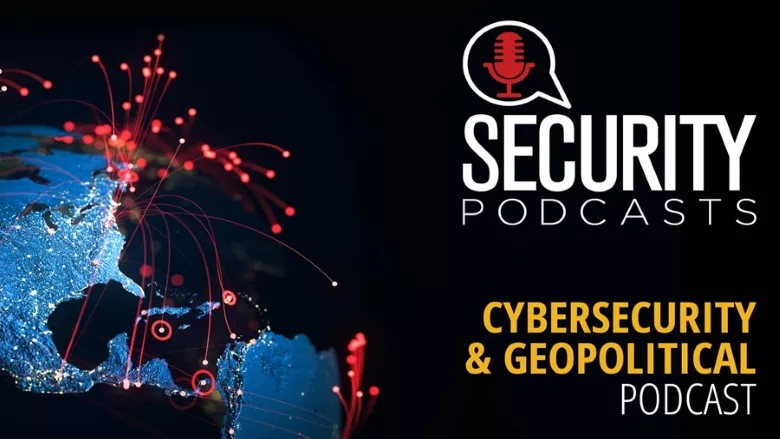The Security Podcasts
Global security threats in 2022: Looking back to move forward
Check out Episode 13 of the Cybersecurity and Geopolitical Podcast.

Security magazine presents Episode 13 of the Cybersecurity and Geopolitical Podcast, which features co-hosts Ian Thornton-Trump, CD, Chief Information Security Officer (CISO) at Cyjax, and Philip Ingram, MBE, CEO of Grey Hare Media, discussing the moves of prominent threat actors on the geopolitical stage and their security implications.
As 2022 comes to a close, Thornton-Trump and Ingram dive into the geopolitical conflicts driven by Russia, China, Iran and North Korea and how world events have affected the nations' current cybersecurity capabilities.
You can listen to the audio version right here below!
Or check it out on our Apple Podcasts or Spotify channels. Don't forget to like, follow, and rate and review our podcasts! Watch the video version here or on our LinkedIn and YouTube channels.
The 2022 world stage in review
China, Russia, Iran and North Korea — have these global protagonists achieved success in their missions to destabilize the G19, or are the situations on their home fronts actually reducing the potency of their cyber efforts and geopolitical goals?
This is the key question for Philip Ingram, MBE, and Ian Thornton-Trump, CD, as they look back at the most significant hits and misses of these threat actors in 2022.
It's evident that internal instability, economic plight and, in many cases, a relentless focus on a military preparation for confrontation with the West and its allies is a massive drain on the economies of these protagonists. The discussion is far-ranging and reveals inklings of what the future may hold in 2023.
Russia
The Russian invasion of Ukraine conflict is taking a toll on Putin's grip on the Russian public and Oligarch support. After over 10 months of war in Ukraine, the Western and EU sanctions are inflicting serious harm to the Russian economy. Will these trends create an opportunity for abrupt change in the Russian leadership?
China
China appears to be struggling with internal challenges from the zero-COVID policy, and political discontent within leadership has been observed. The provocative moves and massive investment in developing "near peer" weapon systems is unsettling, especially to the people of Taiwan. With talks of global recession, will those economic impacts further erode Xi Jinping’s grip on the country?
Iran
Iran finds itself in a very difficult geopolitical and internal situation. It's the second most sanctioned nation after North Korea, an arms-trading partner supplying Russia in an illegal war, and faces a full-blown anti-government political movement due to archaic enforcement of "public morality" rules affecting the freedom of women in the country. Given the massive economic burden and limited customers for its oil exports, will Iran become — or indeed is it now — a failed state?
North Korea
And then there is North Korea. Arguably a proxy of China’s and/or Russia’s global machinations, this small nation seems to be playing a game of "look at me" on the world stage, with proactive ballistic and short-range missile launches, as well as a stream of threats to unleash nuclear capabilities on just about anyone in its general vicinity. But as North Korea increasingly becomes eclipsed by other world events, have its activities and announcements simply become background noise?
These questions, along with a healthy discussion on cyber capabilities, form the main discussion as 2022 comes to an end.
Looking for a reprint of this article?
From high-res PDFs to custom plaques, order your copy today!






